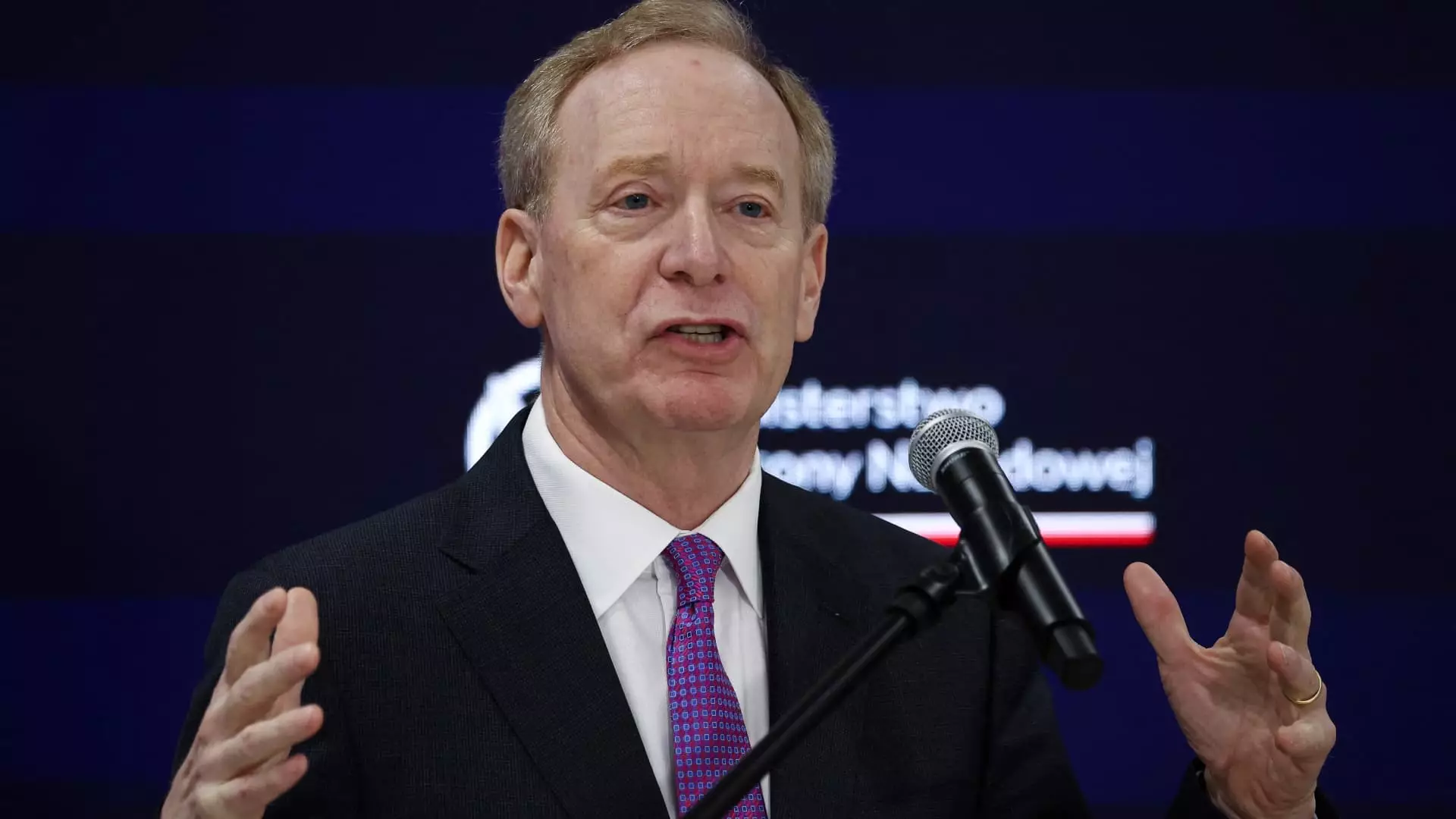In the ever-evolving landscape of global technology, Microsoft stands as a prominent player, with its President Brad Smith underscoring the company’s unwavering commitment to respect European laws. However, this declaration comes with an implicit acknowledgment that compliance does not always equate to agreement. As Smith aptly puts it, “Like every citizen and company, we don’t always agree with every policy of every government.” This nuanced stance highlights a critical aspect of contemporary corporate governance, where multinational corporations must navigate the complexities of differing regulatory environments while maintaining their operational integrity.
Smith’s comments were part of a larger strategic endeavor as Microsoft attempts to reassure European stakeholders amidst rising tensions stemming from U.S. trade policies. The backdrop of President Trump’s tariffs and his trade war with various global partners has incited fears in Europe that regulatory tools could be weaponized against American tech giants. Microsoft, being one of the largest entities in this space, finds itself at the intersection of these geopolitical currents, where it must balance its business interests against the prospect of regulatory pushback.
Understanding the Digital Markets Act
Central to this discourse is the European Union’s Digital Markets Act (DMA), which aims to regulate the market influence of major technology firms. The legislation heralds a new era of accountability, targeting the so-called “gatekeepers” — companies with substantial market power that could distort competition. Microsoft’s proactive lean into compliance can be viewed as a calculated move, sparking a discussion on the effectiveness of the DMA and its implications for innovation and competition within the tech sector.
Recent actions by the European Commission, including hefty fines imposed on tech titans such as Apple and Meta for breaches of the DMA, set a precedent that signals a rigorous regulatory climate. Microsoft’s acknowledgment of these legal frameworks, as highlighted in Smith’s blog post, reveals a deeper understanding of the necessity of regulatory compliance, not only as a legal obligation but as a means of fostering trust with consumers.
America’s Trade War: A Double-Edged Sword
Interestingly, the dynamics of U.S.-EU relations, exacerbated by Trump’s trade policies, add another layer of complexity to Microsoft’s strategy. The fear of retaliatory tariffs aimed at U.S. tech firms is a specter that looms large over corporations like Microsoft. Trump’s rhetoric surrounding “overseas extortion” positions European regulations as antagonistic to American interests, which can create an atmosphere of tension between the regions. In this context, Microsoft’s approach to openly engage with European laws suggests a desire to diffuse such tensions by highlighting a commitment to international standards of fairness.
By taking a stand on compliance, Microsoft not only aims to mitigate the risk of being viewed as a target in this trade war but also positions itself as a cooperative entity willing to contribute positively to the European digital landscape. This strategic posture can potentially disarm critics who perceive U.S. tech firms as aggressive players seeking to dominate markets at any cost.
Moving Forward with a New Vision
Despite the formidable obstacles posed by international politics and stringent regulations, Microsoft’s approach serves as a case study in adaptive corporate governance. The company’s commitment to building digital infrastructure across Europe represents not just compliance but engagement with the future of tech and society. By fostering a deep respect for local laws in Europe, Microsoft aligns itself with the broader narrative of corporate responsibility, an increasingly critical expectation from consumers and stakeholders alike.
This proactive stance may also encourage other tech companies to follow suit, showcasing that legal frameworks can indeed coexist with innovation. As the world watches how Giants navigate these waters, Microsoft’s pledge shines a light on the potential for collaboration between corporate entities and regulatory bodies, promoting an environment that upholds fair business practices while encouraging technological advancements. In an era where trust and compliance are paramount, Microsoft’s assertions serve as a roadmap for others to emulate, creating a more harmonious relationship between global technology firms and the diverse regulatory landscapes they operate within.


Leave a Reply